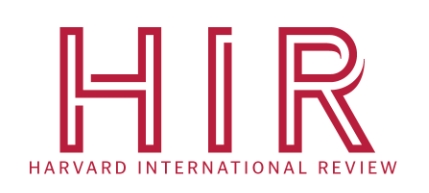Competition introduction
Harvard International Review Academic Writing Competition for Middle School Students , Harvard International Review Academic Writing Competition, referred to as HIR, is an academic writing competition organized by Harvard International Review for middle school students in grades 9-12 around the world. Participating students write an academic article of 800-1200 English words on the theme of a local or international issue related to the common destiny of mankind in the future.
The jury composed of editors of Harvard International Review and Harvard scholars will review submissions from all over the world and select awards at all levels.
Contestants whose works advance to the finals will be invited to participate in an online defense meeting to experience the academic defense experience and receive feedback from the jury. Some outstanding works of each competition will be nominated and published by Harvard International Review.

HIR Competition Time
There are three different submission cycles. Participants whose works advance to the finals will be invited to participate in an online academic defense meeting to receive feedback from the jury.
SPRING SPLIT
Submission deadline: May 31, 2024
Final defense: June 29, 2024
SUMMER SPLIT
Submission deadline: August 31, 2024
Final defense: October 5, 2024
AUTUMN AND WINTER GAMES
Submission deadline: January 2, 2025
Final defense: February 5, 2025
HIR Competition Award Setting
All submissions will receive a letter grade from Harvard International Review. All ratings and award decisions are final. The competition will not be able to provide additional details beyond the grades provided by Harvard graders.
All contestants
HIR electronic magazine
Commendation (the winning rate is about 40%)
HIR Certificate (passing grade, but not eligible for HIR Defense Day)
Bronze Award (Top 20% globally)
HIR certificate, name and works are announced on the official website
Silver Award (Top 10% worldwide)
The HIR certificate, name and works will be announced on the official website, and 1-year HIR paper publication will be awarded.
Gold Award (Top 3% worldwide)
HIR award certificates, winning works and names of contestants will be announced on the official website, and 2 years of HIR paper publication will be awarded.

The gold content of HIR competition
Sponsored by the top academic journal "Harvard International Review"
Speak up for humanity’s common destiny and participate in Harvard Defense Day
Outstanding works were nominated and published by Harvard International Review
Entrants need to register and pay to be eligible to submit articles by the submission deadline
HIR Competition Submission Guidelines - Requirements
Inspired by the growing number of high school readers around the world, Harvard International Review created the Harvard International Review Academic Writing Contest to encourage and highlight outstanding high school writing related to international affairs.
HIR Competition Eligibility
An academic writing competition for middle school students in grades 9-12 around the world
USA
Students are eligible if they are in grades 9-12 in any of the fifty states, the District of Columbia, U.S. territories, or if they are a U.S. citizen/lawful permanent resident attending high school overseas.
internationality
Submissions from students from countries outside the United States are also welcome. Entries should be written in English and traditional American spelling. For more information about submitting in your country, please contact contest@hir.harvard.edu
2024HIR Competition-Contestants Can Choose 2 Different Themes
Topic A: Inequality in a VUCA world
Inequalities in a VUCA World
VUCA stands for Volatility, Uncertainty, Complexity, Ambiguity, and it is VUCA that has shaped the world today, with these broader themes exacerbating and forming the backdrop and foundation for a wide range of inequalities.
Across the globe, deep inequality determines the distribution of resources, including military power, education, wealth, capital, and natural resources. These inequalities persist across different political classes, dividing different regions of the world (North-South divide), countries, or different cities/towns within a country. They may also segment people based on their demographic characteristics: gender, race, ethnicity, religion, socioeconomic class, caste, sexual orientation, etc.
Theme B: Global Challenges and Collective Action
Global Challenges and Collective Actions
The news focuses mainly on military conflicts, such as those in Ukraine and Israel/Palestine.
However, the scope of "global challenges" goes far beyond war and includes other, more humanitarian crises: discrimination, famine, natural disasters, disease, climate-related displacement, and more. Collective action to address these broad issues includes not only multinational coalitions (such as UNICEF) but also grassroots activities and national social movements.
Contestants Can Choose Any Of The Above Topics When Writing Their Article
Content: Articles should address topics relevant to today's international affairs. Potential categories include (but are not limited to): Agriculture, Commerce, Cybersecurity, Defense, Education, Employment and Immigration, Energy and Environment, Finance and Economics, Public Health, Science and Technology, Space, Trade and Transportation. The article should look at the subject from a global perspective rather than focusing on the United States.
Length: Articles should be at least 800 words but no more than 1,200 words (not including figures, tables, or author statements).
Writing Style: Submissions should present an analytically informed perspective on an underappreciated global topic.
AI Policy: Use of ChatGPT is prohibited. Judges will run all articles through multiple AI checkers, and articles with high AI generated scores in multiple checkers will be disqualified.
Excellent entries will aim to present a comprehensive presentation of a topic from a balanced perspective. Evidence and nuance matter. Submitted work should be well researched, well informed, and formal in style and prose.
HIR does not accept op-eds, also known as editorials or opinion pieces. Articles should have a thesis, but not an agenda. Submissions should also not be merely a collection of facts.
As an organization of journalists, we require that submissions comply with the latest version of AP Style. We also require submissions to be culturally sensitive, fact-checked and respectful.
HIR Topics - Popular Topic Areas
13 hot topic areas - contestants can choose independently
agriculture
Business
cyber security
educate
Energy and environment
Finance
Employment and Immigration
trading
transportation
space
national defense
public health
science and technology
HIR Competition Registration Page
Welcome to use the official registration channel in China: the number of submissions in each issue is limited, and the registration channel will be closed when the quota is full.
HIR Submission Instructions
(The submission method will be notified separately after the contestants complete their registration)
1. The contributors of each manuscript should be 1-2 students in grades 9-12;
2. If two people submit a manuscript together, only one person can fill in the form and pay the fee. Please provide the name of the collaborator when submitting the manuscript;
3. The name of the contributor cannot be changed after the manuscript is submitted. The contributor must participate in the online defense;
4. Manuscripts submitted must be original to the author. If there is any academic misconduct, the submission qualification will be disqualified once verified;
5. After completing the registration and payment, we will notify you of the live broadcast course arrangements and submission matters through the reserved WeChat account;
6. Registration fee: RMB 1,480 / team (1-2 people per team) . The fee includes a 5-hour live English writing class provided by Harvard International Review, first and second round review of works, and Harvard Defense Day. ), work nomination and commendation, award certificates and other all fees. If the manuscript cannot be submitted on time due to personal reasons, the paid fee will not be refunded, but the contestant can apply for a free extension of one submission, and 2 points will be deducted from the total score.
HIR Competition Format
Entrants submit a short essay on an international affairs topic.
Each submission will be read and graded by Harvard International Review.
Some contestants will be selected as finalists and they will be invited to participate in a virtual HIR Defense Day.
On the defense day, students will have the opportunity to give a 15-minute speech and oral defense to the Harvard International Review judges. Students can also participate in other special events related to international affairs.
Grading:
The full score of the HIR competition is 55 points, which is divided into two categories: content and topic selection and style and specification.
The content and topic selection part accounts for 30 points, including six sub-items: topic selection, article introduction, structure and transition, use of arguments, argument analysis, and overall coherence of argumentation, with each sub-item worth 5 points.
The style and standardization section accounts for 25 points and includes five sub-items: tone and tone of the article, spelling, punctuation and grammar, compliance with the "Harvard International Review Writing Style Guidelines", standardization of literature citations, and ease of reading . Each item is worth 5 points.
HIR Competition Official Pre-Match Training
Before submitting their works, contestants will participate in a 5-hour online live class led by Harvard scholars and senior writers of Harvard International Review
Lesson 1: Explanation of Writing Contest Requirements Submission Guidelines
Lesson 2: Write HIR articles like building blocks
Lesson 3: Sources and Citations
Lesson 4: Outlining your article
Course Five: Article Writing Methods and Strategies
The live training course instructor team is composed of Harvard University scholars
HIR Competition Official Excellent Work Cases
The trade war no one talks about
Kashmir: Between Rock, Hard Land and China
Africa’s evolving science community: a new renaissance
Harvard International Review
Harvard International Review is a quarterly journal that provides insights on international affairs from the perspectives of scholars, leaders, and policymakers. Since our founding in 1979, we have been committed to bridging the academic and policy communities through outstanding writing and editorial selection.
It is the world's top social science academic journal, with a circulation of more than 100,000 copies per issue. It mainly publishes Harvard students’ multi-angle views and understanding of international affairs. Contributors include academics, professors, leaders, international experts and other prominent figures from around the world. So far, 43 presidents and prime ministers, 4 United Nations secretaries-general and 11 Nobel Prize winners have commented. Its editorial board is composed of distinguished Harvard scholars and is mentored by Harvard professors.
The journal is one of the must-read journals in many prestigious universities around the world. As a top academic journal, Harvard International Review publishes research papers on international issues in various fields every week. As a result, it has attracted worldwide attention, and so has its essay contest!







no comments
To post a comment you must firstlog in